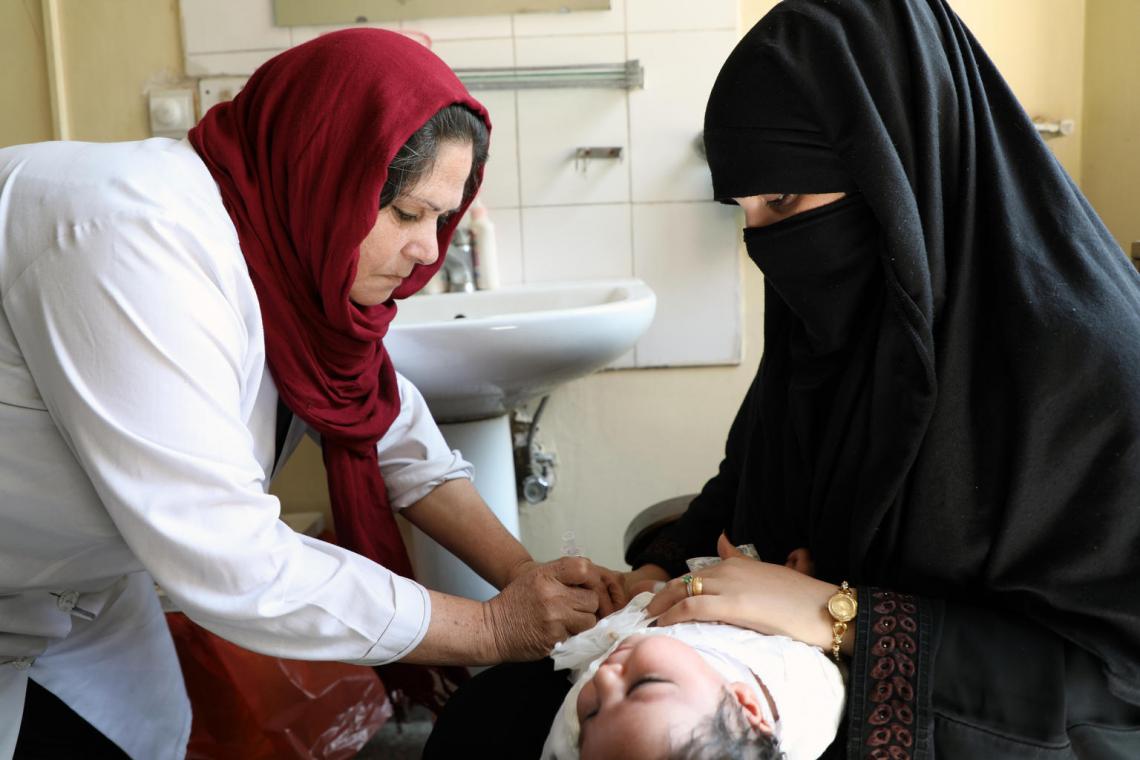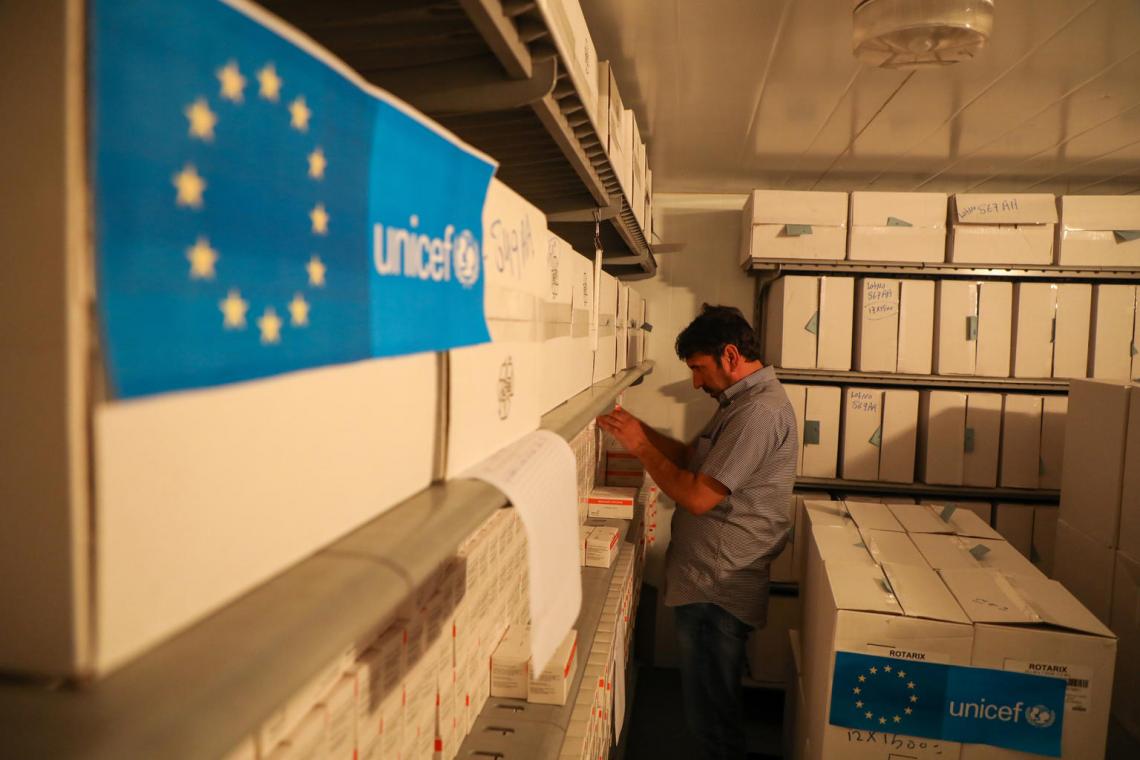Immunization continues amid COVID-19
European Commission Civil Protection and Humanitarian Aid Operations (ECHO) humanitarian air bridge made it possible.
- 9 October 2020
- 3 min read
- by UNICEF Afghanistan

At Indira Gandhi Children’s Hospital in Kabul, mothers are queuing to vaccinate their children.
Yet, for Zarmina, a 30-year old mother of two, immunization is important for her child’s survival, especially amid COVID19.
“I know the importance of vaccines for my children, especially now’ says Zarmina from Kabul. ‘So, I set my mobile alarm in order not to miss it.’

In Afghanistan, in 2019, 1 in 17 children died before reaching their fifth birthday. To make things worse, and according to the Ministry of Public Health, during the height of COVID19 pandemic, visits to health services reduced. This is due to the fact that mothers and fathers were afraid of contracting the virus, and had no option but to de-prioritize health care, adding to the risk faced by newborns, infants and pregnant women.
‘The disruption of the expanded programme on immunization will increase the risk of child morbidity and mortality,’ says Dr. Sanjay Bhardwaj, Immunization Manager, UNICEF Afghanistan. ‘Routine immunization is critical in saving the lives of children.’
During the height of COVID19 pandemic, the European Union carried out an emergency humanitarian air bridge in support of most vulnerable children and women like Zarmina and her children.
“We received 26 metric tonnes of life-saving immunization vaccines amidst the Covid19 pandemic with thanks to ECHO,’ says Dr. Bhardwaj. ‘This is sufficient to vaccinate at least 390,000 out of 1.35 million infants and 900,000 women for a period of three months.’
The vaccines were delivered to the Ministry of Public Health, who leads the national expanded programme on immunization.
‘Out of fear of facing shortage in vaccine supplies, we requested UNICEF to supply us with vaccines,’ says Abdul Mateen, 59 year-old, National Cold Chain Manger at Ministry of Public Health. “I have been in my current position for the past 14 years, and my message to mothers and fathers remains the same: I constantly remind every parent to vaccinate their baby.’

Determined to protect her children from vaccine preventable diseases
As a mother of two children, Ahmad, 6 and Basira, 6 months old infant, Zarmina is determined to protect her children from childhood illnesses.
‘I did not complete my education,’ says Zarmina with dismay. ‘Though, I know that vaccinating my children on time is important not only to protect them from diseases, but also in saving their lives.’
Like millions of women in Afghanistan, Zarmina missed out on education. Yet, with thanks to Ministry of Public Health social mobilization campaigns, Zarmina is committed to vaccinating her children.
‘I even encourage my neighbours to vaccinate their children,’ says Zarmina. ‘This way, we can stop the spread of diseases among our children.’
Zarmina and her small family live in Afghanistan’s capital Kabul. Her husband, Mohammad is a shopkeeper, who sells dry fruits.
‘My husband has a small shop, where he sells dry fruits,’ says Zarmina with pride. By selling dry fruits, her husband earns AFN 25,000-30,000 per month {$320-$380}.
‘I am satisfied with our monthly income, especially when I compare myself with our neighbours who cannot afford food on the table,’ says Zarmina with contentment.
In Afghanistan, one out of two are living below the poverty line. Amid COVID19 and increased violence, more and more families are falling below the poverty line, living under $2 per day.
‘All I want in life is to educate my children,’ says Zarmina. ‘I want my baby daughter Basira to become a teacher and teach future generations.’
More from UNICEF Afghanistan
Recommended for you






